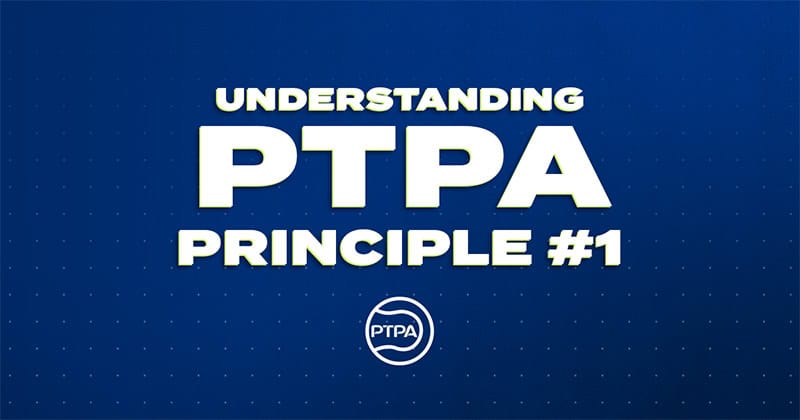
The first tenet of the PTPA Principles focuses on collective action and advocacy on behalf of pro tennis players worldwide through three main avenues: collectivity amongst players, freedom of association, and the right to organize. Here’s a deeper look at what PTPA Principle tenet #1 means.
Principle 1a: Collective
Tennis is predominantly an individual sport, but that should not mean individual players are isolated and divided.
A unified player voice – despite tennis’ individual nature – is crucial to creating collective power for players and increasing their impact potential as stakeholders in the overall tennis ecosystem. A united athlete voice can play a pivotal role in negotiating rights, holding stakeholders accountable, and more. Watch the below video to learn more about the power of athlete collectivity.
Learn More About Our Principles
Other sports with decades-old players associations have demonstrated how collectivity can spur major improvements for athlete well-being and the overall growth of the game. Click here to read more about how athlete collectivity has pushed global football forward, for example, and hear why collectivity matters to ATP player Damir Dzhumhur.
Damir Dzumhur about PTPA
Principle 1b: Freedom of Association
Tennis players have the right to independent and collective representation on all matters of mutual interest.
Having entities that work with players in the tennis ecosystem is not enough – players must have truly independent, collective representation. The PTPA provides players autonomous representation, and is free from any conflicts of interest or duties to other stakeholders. The PTPA works on behalf of the players’ matters of interest only.
Hear more from Executive Director Ahmad Nassar on why independent representation for athletes is so important.
Ahmad Nassar for athletes
Principle 1c: Right to Organize
Tennis players have the right to join the players association and to have their individual and collective rights maximized and protected.
As an extension of the PTPA’s belief that players have the right to independent and collective representation, players also have the right to join the players association in order to have their rights maximized and protected.
The right to organize is paramount in helping players establish an autonomous seat at the table in order to play an active, collaborative role with tennis’ other stakeholders in pushing the sport forward. Across sports, there are examples of athletes working hand in hand with their respective players associations to maximize and protect their rights. Watch the below video for a timely example from Nneka Ogwumike, WNBPA President and LA Sparks forward.
Nneka Ogwumike on athletes
Next, we’ll look at PTPA Principle tenet #2, which focuses on the business of tennis and terms of participation. Click here to read the full PTPA Principles, and stay tuned for deeper looks at the other four principles tenets.